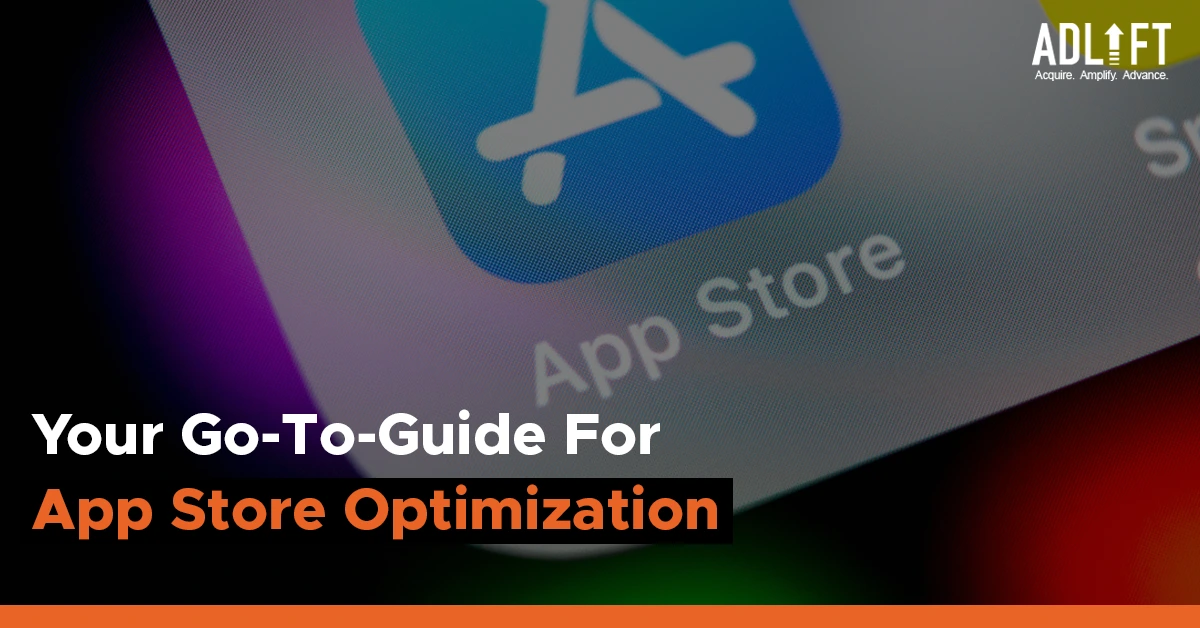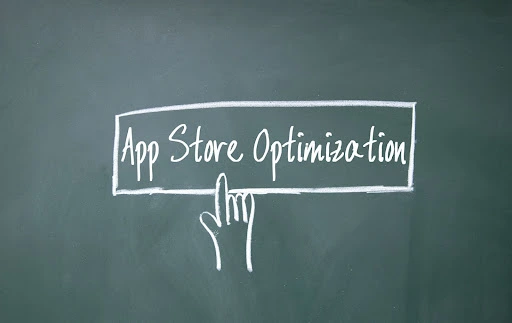Your Go-To-Guide For App Store Optimization

In today’s digital age, the success of a mobile app relies heavily on its visibility and discoverability in the app stores. To maximize your app’s presence and increase the chances of reaching potential users, implementing effective strategies for ASO optimization is essential.
This all-inclusive app store optimization guide will explore the essential elements of ASO optimization. We will also provide invaluable insights to elevate your app’s visibility and generate organic downloads.
Understanding App Store Optimization
App Store Optimization, commonly known as ASO, is optimizing mobile applications to rank higher in app store search results. It involves various techniques and strategies, such as keyword research and optimizing the app’s title, description, screenshots, ratings, and reviews, among other elements, to attract more organic downloads.
An effective app store optimization guide can provide valuable insights and recommendations to app developers and marketers looking to improve their app’s discoverability and success in the app stores.

Researching and Selecting App Store Keywords
Keyword research forms the foundation of ASO optimization and app store SEO. Start by brainstorming a checklist of appropriate keywords and phrases that users may search for when looking for an app similar to yours. Consider the perspective of your audience and choose appropriate keywords that they would use to search for an app similar to yours.
Use tools like Google Keyword Planner, App Annie, or Sensor Tower to identify popular and high-ranking keywords in your app’s niche. Aim for a mix of high-volume and low-competition keywords to optimize your app’s visibility and enhance its discoverability in the app stores.
Optimizing App Title and Description
The app title plays a significant role in ASO and ASO SEO. Include relevant keywords in your app title to increase its chances of ranking better. However, ensure the title remains concise, unique, and easy to remember. Avoid keyword stuffing, as it may adversely affect your app’s credibility.
The app description is another critical element in ASO and ASO SEO. Utilize the description to highlight the key features and benefits of your app.
Incorporate relevant keywords naturally throughout the description, considering it should be engaging and informative. Use bullet points, paragraphs, and formatting techniques to make the description scannable and easy to read.
Creating Compelling App Icons and Screenshots
Visual elements are essential for grabbing the attention of potential users in the app store and for ASO optimization. Creating an eye-catching app icon that accurately represents your app’s purpose and branding is crucial.
It should be simple, unique, and visually appealing, standing out among the competition. Screenshots provide users with a preview of your app’s interface and functionalities, making them an important aspect of ASO optimization. Use high-quality screenshots that showcase the best features and user experience.
Include captions, annotations, or call-to-action overlays to guide users and highlight the app’s value proposition. Optimize the order of screenshots to tell a compelling story and entice users to explore further.
Encouraging Positive Ratings and Reviews
Positive ratings and reviews significantly influence users’ decision-making and play a crucial role in app store SEO and ASO SEO. Encourage existing users to leave reviews and ratings by implementing in-app prompts or pop-ups.
Respond promptly and professionally to positive and negative reviews, addressing users’ concerns and demonstrating your commitment to customer satisfaction.
Aim for a high average rating, as it can positively impact your app’s rankings and conversion rates, further boosting your app store SEO and ASO efforts.
Monitoring and Analyzing Performance
ASO is an ongoing process, and it’s crucial to monitor and analyze your app’s performance regularly. Utilize app analytics tools like App Store Connect or Google Play Console to gather insights on keyword rankings, conversion rates, download trends, and user engagement metrics.
This data, along with the guidance provided by an app store optimization guide, will help you identify areas for improvement and refine your ASO strategy accordingly.
By leveraging these tools and resources, you can make data-driven decisions to enhance your app’s visibility, attract more organic downloads, and achieve your app’s goals.
Experimenting and Iterating
ASO is not a one-time task; it requires continuous experimentation and iteration. Test variations of your app’s title, description, screenshots, and even pricing to determine what resonates best with your target audience.
A/B testing can provide useful insights into user preferences and behavior. Stay updated with the latest trends, algorithm changes, and best practices in ASO to stay ahead of the competition.
Conclusion
App Store Optimization (ASO) holds immense power in shaping the success of your app within competitive app stores. By dedicating time and effort to activities like researching and selecting relevant keywords, optimizing your app’s title and description, crafting captivating visuals, fostering positive ratings and reviews, closely monitoring performance metrics, and leveraging data-driven iterations, you can significantly enhance your app’s visibility, attract a larger organic user base, and ultimately achieve your app’s objectives.
To unlock the full potential of ASO SEO, an app store optimization guide can serve as a valuable resource, offering insights and best practices tailored to maximize the effectiveness of your ASO SEO efforts. Remember, ASO is an ongoing endeavor, requiring regular evaluation and refinement of your strategies to maintain a strong competitive edge in the ever-evolving app ecosystem.
Recent Posts
- Google Search Revolutionized for Educational Videos November 16, 2023
- Bidding Adieu to Google’s Page Experience Report November 9, 2023
- Google November 2023 Core Update November 3, 2023
- Unmasking Google’s October 2023 Spam Update October 5, 2023
- Unleash SEO Power: Must-Have Chrome Extensions for Website Success September 20, 2023
- SEO-Friendly URL Optimization: Mastering Structure for Better Ranking September 20, 2023
- Real Estate Marketing Ideas: Crafting a Results-Driven Marketing Strategy September 20, 2023
- The Anatomy of a Broken Link: Causes, Effects, and Solutions September 15, 2023
- Crafting an Informative FAQ Section: A Step-by-Step Guide September 14, 2023
- Local Business Schema Markup: Elevate Your Brand With The Magic September 14, 2023
Get
in Touch
Contact AdLift for a 360-degree marketing plan
